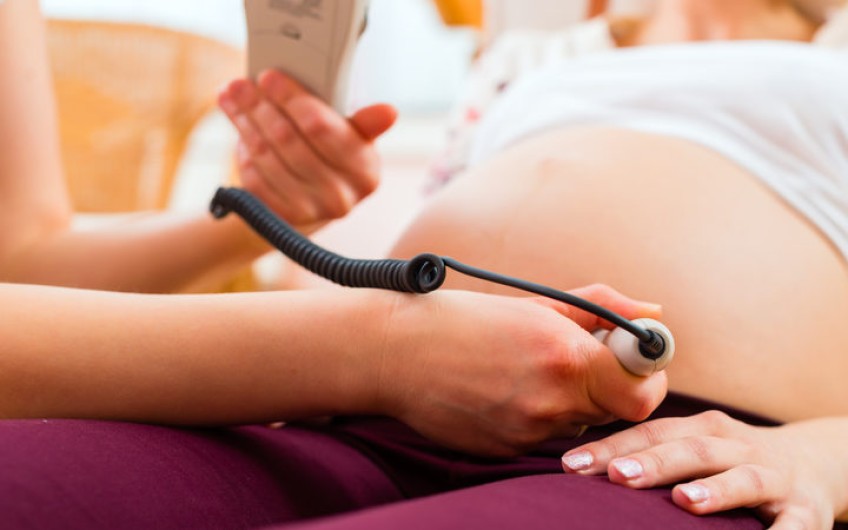
Midwives "should be on $240,000 a year"
The only remaining resident Wanaka midwife has welcomed news that a project to come up with a new primary midwifery contracting and funding model has determined midwives should be paid $241,000 a year.
Wanaka lead maternity carer Deb Harvey says this “validates” the seven year struggle by midwives around the country for better pay and working conditions.

Wanaka midwife Deb Harvey
The Ministry of Health and New Zealand College of Midwives co-design project found that “a fair and reasonable remuneration” for the work of a community midwife would comprise $170,000 base income, $30,000 for on-call costs and $41,000 for business costs.
Harvey says she has “just done her end of year accounts” and she earned $90,000 before tax last year for working eleven-day fortnights, and an average of sixteen hours a day.
“Every working day is about a sixteen hours, but not every part of that is face to face, there are also administration and an unplanned callouts,” Harvey says.
The co-design project was part of a settlement reached when the College of Midwives dropped an earlier pay equity court challenge against the Ministry.
It began in May last year and documents released under the Official Information Act show the Minister for Health David Clark received the report and recommendations in early December but the Ministry of Health’s initial advice was not to implement the recommendations of the co-design team.
In the documents the MOH “agrees quick action is needed to support midwife recruitment and retention”… “but the Ministry is not convinced that the co-design team’s proposed model will deliver best outcomes for mothers and babies, improvements to midwives working conditions or value for money.”
If the proposed model was adopted it would cost $353 million a year, an increase of $237 million per year, which the Ministry says would not be affordable in the short or long term.
In the meantime Harvey says the Ministry of Health is “dumping more and more responsibility” on to midwives in the regions where there are no other (obstetric) services.
“The MOH knows it is getting a lot of bang for their bucks as we provide entire wrap around care. We have a huge responsibility as there is no one here to assist us, in a city you would get that,” Harvey says.
Midwives received an 8.9 pay increase in the budget this year which the College of Midwives said did not go far enough, but Harvey believes the Minister is “doing the best that he can as the midwife shortage happened under National’s watch”.
“We tried to sit down with National for the entire time they were in power and they didn’t even bother to meet with midwives.”
Senior National MP and opposition health spokesman Michael Woodhouse responded by saying “the previous National Government raised midwifery fees and set up the co-design process that designed a new pay structure and fair income for midwives”.
He says “it is the current Government who didn’t recognise the completion of this process, which was finalised back in December 2017, nor fund any attempt to address pay equity for community midwives thus far.
“This is after Health Minister David Clark stood in front of midwives in May at their pay rally, months after rejecting the outcome of the court mandated co-design process, and told them that he was listening – his avoidance of this advice shows that he wasn’t.”

Local MP Jacqui Dean meets with Wanaka midwives earlier this year
Mr Woodhouse says Oamaru based Waitaki National MP Jacqui Dean “has been in close contact with midwives, mothers, the DHB and other key people involved in midwifery down in Wanaka and has been advocating on their behalf.”
In 2010 Harvey says there were nine midwives covering the district but earlier this year the only other remaining Wanaka resident midwife Morgan Weathington resigned because of the toll the job was taking on her and her young children.
The Southern District Health Board hired a full time locum midwife to the end of October to replace Weathington but Harvey says there is still no word on whether her contract will be extended.
“The DHB is hoping a Wanaka midwife is going to come back to work, so they keep talking, but one more midwife in Queenstown or Wanaka is not the solution.”
“The current model is just not robust.”
Harvey says she is coping and Wanaka mothers are very supportive, always asking after her, but the job is very hard on her family.
“I have a 16 year old, and another one at university now, plus an amazing supportive partner who makes it easier for me to work this crazy on call job, but it was hard on us all when they were younger.”
“My children have a love/hate of midwifery, they are proud of what I do but hate the fact that I’m not available 80 per cent of the time.”
The College of Midwives is meeting with the Health Minister today to discuss the co-designed funding model in make or break pay talks.





























